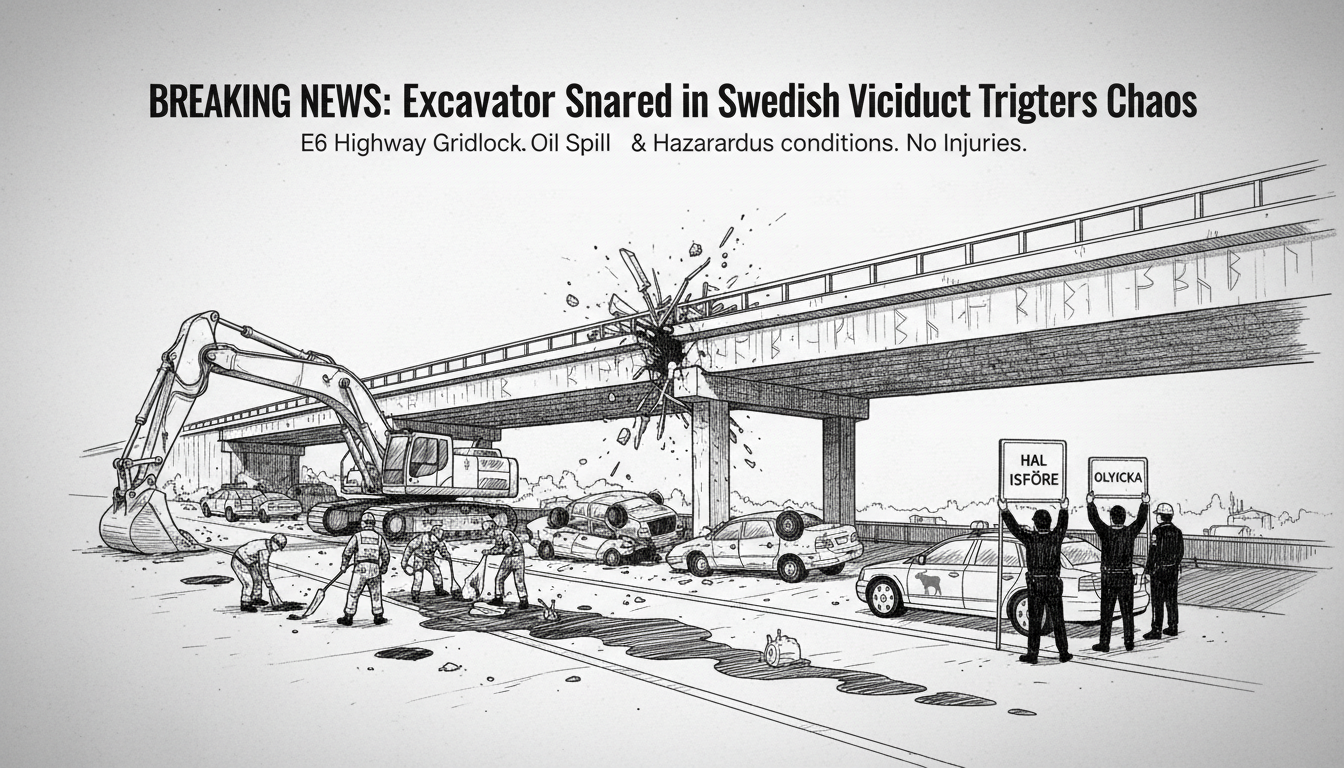An excavator became stuck in a viaduct at traffic junction 58 Fjärås early Monday morning, triggering a chain of accidents that disrupted traffic throughout the morning. The machine's bucket reportedly got trapped in the asphalt around 5:46 AM, creating major difficulties for removal crews.
The initial incident led to additional accidents as traffic backed up in both directions. A truck collided with a traffic island refuge, while a passenger car slid off the road near the E6 highway entrance ramp. Authorities confirmed no injuries occurred in any of the incidents.
Emergency responders discovered an oil spill at the excavator accident scene. Cleanup crews arrived promptly to contain the environmental hazard. Police warned that road conditions remained extremely slippery hours after the initial incident.
This type of infrastructure disruption highlights Sweden's ongoing challenges with maintaining its extensive highway network. The E6 corridor serves as a vital transportation artery connecting Gothenburg with southern Sweden, making such incidents particularly disruptive to commercial and commuter traffic.
Swedish transportation authorities face increasing pressure to maintain aging infrastructure while managing growing traffic volumes. Similar equipment-related incidents have occurred previously on Swedish highways, though rarely during morning rush hours when traffic volumes peak.
Road closure protocols in Sweden typically involve immediate deployment of traffic management teams and environmental response units when spills occur. The rapid response to this incident demonstrates Sweden's well-developed emergency management systems, though the initial equipment failure raises questions about construction safety protocols near active highways.
International drivers in Sweden should note that highway incidents often trigger lengthy delays due to comprehensive investigation and cleanup procedures. Swedish law requires thorough documentation of all traffic incidents, especially those involving potential environmental hazards like fuel spills.
The economic impact of such highway closures can be substantial, particularly when they affect major transport routes like the E6. Logistics companies and commuters typically face hours of delays as authorities work to secure accident scenes and restore normal traffic flow.

